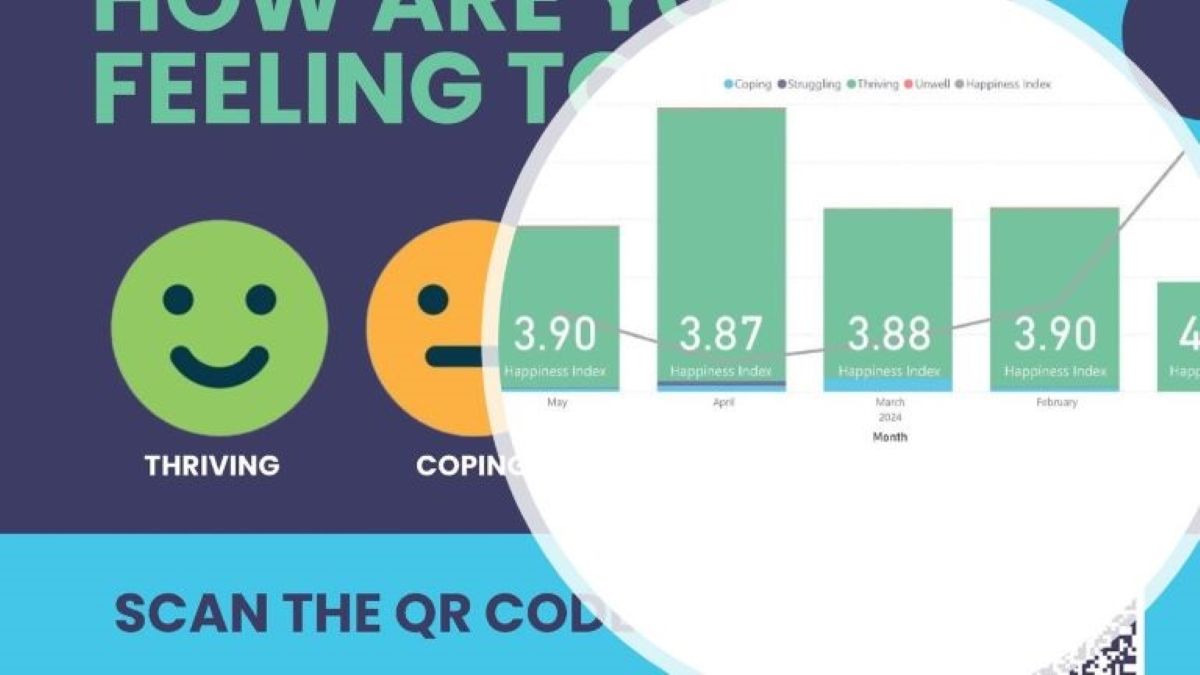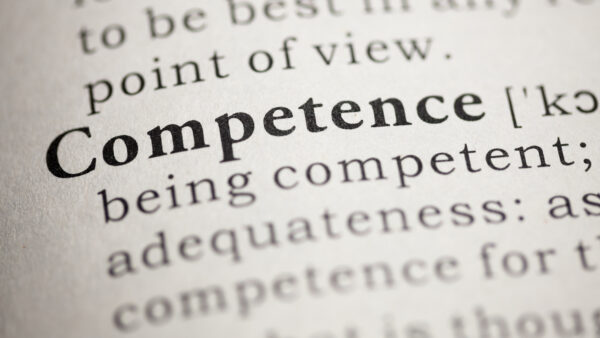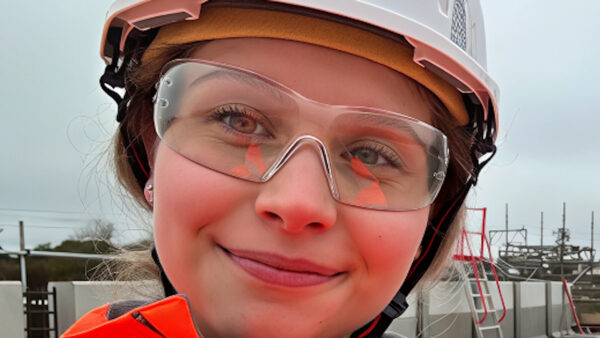In our latest column from the Considerate Constructors Scheme (CCS), Desiree Blamey shares good practices for tackling mental health and highlights the progress being made across the construction industry.

This article supports Q3.2.1 of the Considerate Constructors Assessment: How is the Registered Activity assessing the needs of the workforce to drive an improvement in wellbeing? and Q3.3.3: How has the Registered Activity supported other workforce needs?
Please note this article includes discussion of suicide and depression some readers may find upsetting or triggering.
Mental health remains the biggest threat to life in the UK construction sector. Two construction workers die by suicide every day, giving the industry the highest suicide rate of any sector. This ‘silent epidemic’ is tearing through lives and families.
At CCS, we take mental health seriously. It is a core element of our Code of Considerate Practice, particularly the ‘Value their Workforce’ section, which focuses on wellbeing and stress. We help identify gaps, offer resources, and promote best practices to build stronger support systems across the industry.
Our code calls on all registered organisations to create respectful, supportive workplaces where people are treated fairly and wellbeing is prioritised.
How you can lead change
1. Make mental health a strategic priority. If you don’t have a mental health strategy, now’s the time. Create a policy guided by HSE Management Standards and expert input. Assign clear responsibilities and ensure leadership fully backs it – not as a tick-box exercise, but as a business imperative.
2. Identify and tackle stressors. Use surveys and forums to uncover key stress points. Track progress, develop KPIs, and support managers in creating healthy team cultures.
3. Promote a supportive culture. Encourage open, stigma-free conversations. Train leaders to spot warning signs, review benefits to include counselling and flexible working, and maintain an open-door approach.
4. Raise awareness. Ensure resources are up-to-date and accessible. Promote campaigns through posters, talks, and inductions. Challenge stigma and partner with mental health organisations for training and accreditation.
5. Strengthen support access. Create a network of trained mental health first aiders who can listen, act early, and offer meaningful support.
6. Design for wellbeing. Incorporate wellness spaces – quiet rooms, gyms, healthy canteens – into workplace design to boost morale and resilience.
Many CCS-registered sites have stepped up their efforts to support better mental health.
Overbury’s ‘doom scrolling’ campaign
Overbury plc’s ‘doom scrolling’ wellbeing campaign tackles digital overload by encouraging workers to cut back on negative news and distressing online content, a habit known to harm mental health. To address this, Overbury launched ‘Scroll Less, Live More’, a five-week coaching programme promoting healthier digital habits. The initiative featured site-wide toolbox talks and posters with QR codes linking directly to the sessions.
DGP’s Happiness Index

DGP plc’s Happiness Index puts employee happiness and engagement at the heart of its business. The initiative allows all workers, regardless of employment status, to anonymously check in and share how they’re feeling. Accessible via QR codes on notice boards and discussed in pre-start briefings, the check-ins offer valuable insights into workforce wellbeing. Results are compiled into a monthly index, helping leadership understand the factors impacting their people.
BW Interiors’ CBT campaign
BW Interiors launched a Cognitive Behavioural Therapy (CBT) for the Workforce campaign, offering direct access to professional support for personal challenges. Monthly CBT days provide 12 confidential 30-minute sessions, open to all employees without the need to disclose personal details. The initiative has already supported individuals facing severe mental health issues, including suicidal thoughts, and BW follows up with all participants to ensure continued support and identify further needs.
Kier and positive psychology
Kier Regional Building Western & Wales has adopted a leadership-led strategy to foster a culture of optimism and encouragement through the principles of positive psychology. Their goal is to shift the workplace focus from criticism to celebration, which is especially important in an industry often associated with high stress and negativity.
The team introduced a simple but powerful framework:
- Share good energy and a supportive attitude when at work.
- When making site safety observations, ensure at least two or three of these are positive or good practice observations.
- Give out twice as many green cards (via awards) than red cards.
- Promote and celebrate good outcomes at every opportunity and reward success.
- Support and empower positive behaviours and encourage positive outcomes at every opportunity.
The construction industry has a long way to go in tackling its mental health crisis. Lasting change will come from education, awareness, and coordinated action across the entire supply chain.
By making mental health a priority, we can reshape industry culture, reduce stress at its source, and build a happier, healthier workforce.
Desiree Blamey is head of partnerships at the Considerate Constructors Scheme.
Mental health support and advice for CIOB members, past members and related family is available through CIOB Assist. CIOB, in partnership with Anxiety UK, also provides wellbeing support.
The Lighthouse Charity offers 24/7 free and confidential support on all aspects of emotional, physical, and financial wellbeing.
24/7 helplines: 0345 605 1956 (UK) 1800 939 122 (ROI)
Text HARDHAT to 85258 (UK) or 50808 (ROI)
Live chat and more information: www.lighthousecharity.org
Comments
Comments are closed.










The hardest thing was admitting I had problem with my mental health.Currently I am undergoing therapy,which is helping,I have good days and bad days .The worst symptom is the broken sleep pattern .If Iam lucky I get three hours, before I wake up then it’s every couple of hours
I am currently signed off for a month ,if I have one bit of advice it’s ask for help don’t wait thinking it will pass .It will only get worse ,trust me I made the mistake of ignoring the symptoms.
As an industry we need to address this as a matter of urgency, I don’t mean just putting up some posters .There needs to be a total rethink on programs, working hours ,work load .We need a Management style that actually cares about it’s workforce.If we don’t take action the rate of people taking their own life will increase